
Kos: The Gem of the Dodecanese
Kos, a beautiful island in Greece, is a perfect blend of rich history and stunning natural beauty. Known for its pristine beaches, ancient ruins, and vibrant nightlife, this island offers something for every type of traveler. The town of Kos, with its charming streets and friendly locals, is a great place to start your journey. One of the main attractions in Kos is the Asklepion, an ancient healing center dedicated to the god Asclepius. Here, you can walk among the ruins and imagine what life was like in ancient times. The Roman Odeon and the Castle of the Knights are also must-see historical sites that offer a glimpse into the island's past. For nature lovers, the island's beaches are not to be missed. From the popular Paradise Beach with its crystal-clear waters to the more secluded Agios Stefanos Beach, there's a spot for everyone. The island's lush landscapes also offer opportunities for hiking and exploring. Kos is also known for its lively nightlife. The town comes alive in the evening with numerous bars, clubs, and restaurants offering delicious local cuisine and entertainment. Whether you prefer a quiet evening by the sea or a night of dancing, Kos has it all. Lastly, don't forget to explore the island's local markets and shops. Here, you can find unique souvenirs, handmade crafts, and local delicacies to take home with you. Kos is an island that will leave you with unforgettable memories and a longing to return.
Local tips in Kos
- Rent a bike to explore the town and nearby beaches easily.
- Visit the local markets early in the morning for the freshest produce and unique finds.
- Try the local specialty, 'Pitaridia,' a type of homemade pasta, at traditional tavernas.
- Pack comfortable walking shoes for exploring the ancient ruins.
- Plan your beach visits in the early morning or late afternoon to avoid the midday sun.
Neighbourhoods in Kos
Kos: The Gem of the Dodecanese
Kos, a beautiful island in Greece, is a perfect blend of rich history and stunning natural beauty. Known for its pristine beaches, ancient ruins, and vibrant nightlife, this island offers something for every type of traveler. The town of Kos, with its charming streets and friendly locals, is a great place to start your journey. One of the main attractions in Kos is the Asklepion, an ancient healing center dedicated to the god Asclepius. Here, you can walk among the ruins and imagine what life was like in ancient times. The Roman Odeon and the Castle of the Knights are also must-see historical sites that offer a glimpse into the island's past. For nature lovers, the island's beaches are not to be missed. From the popular Paradise Beach with its crystal-clear waters to the more secluded Agios Stefanos Beach, there's a spot for everyone. The island's lush landscapes also offer opportunities for hiking and exploring. Kos is also known for its lively nightlife. The town comes alive in the evening with numerous bars, clubs, and restaurants offering delicious local cuisine and entertainment. Whether you prefer a quiet evening by the sea or a night of dancing, Kos has it all. Lastly, don't forget to explore the island's local markets and shops. Here, you can find unique souvenirs, handmade crafts, and local delicacies to take home with you. Kos is an island that will leave you with unforgettable memories and a longing to return.
When is the best time to go to Kos?
Iconic landmarks you can’t miss
Plane Tree of Hippocrates
Explore the legendary Plane Tree of Hippocrates in Kos, Greece, a historical landmark where ancient medicine meets timeless beauty.
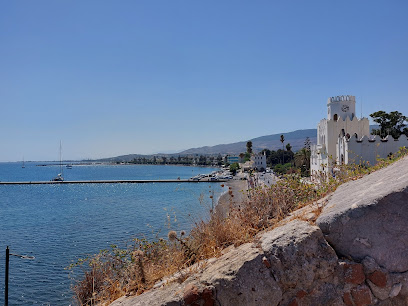
Asklipieio Kos
Discover the ancient Asklipieio of Kos, a healing sanctuary and medical center dedicated to Asclepius, offering insights into ancient Greek medicine.
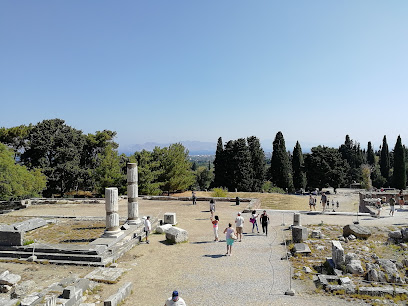
Kos Old Town
Explore Kos Old Town: A vibrant mix of history, culture, and modern life in the heart of Kos, Greece. Discover ancient ruins and charming streets.
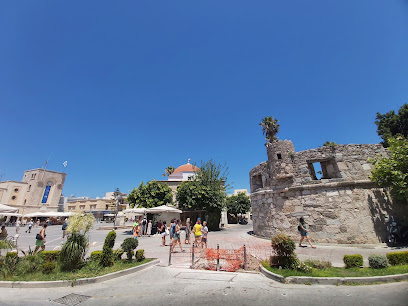
Plaka Forest
Discover Plaka Forest in Kos: A tranquil haven where colorful peacocks roam free amidst shady pine trees, offering a unique nature escape.
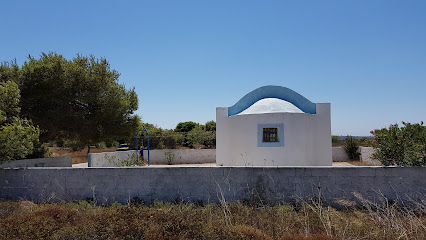
Roman Odeon of Kos
Explore the remarkably preserved Roman Odeon in Kos Town, a testament to the island's rich Roman history and cultural heritage.
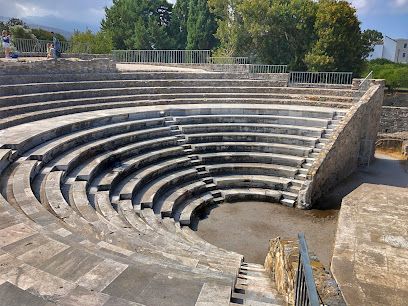
Kos Municipal Market
Experience the vibrant heart of Kos Town at the Municipal Market, a sensory delight of local flavors, crafts, and culture in a historic setting.
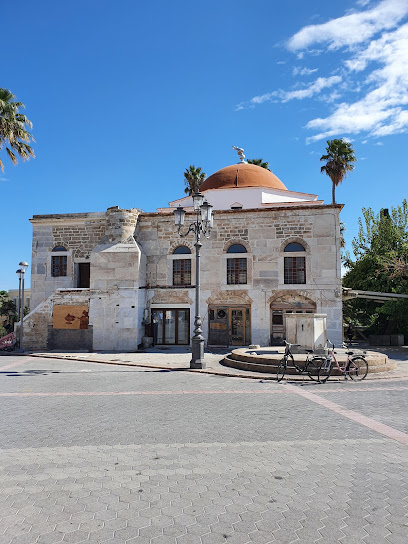
Traditional Windmill Of Antimachia
Discover the Traditional Windmill of Antimachia, a historic gem in Greece, offering breathtaking views and a glimpse into island heritage.
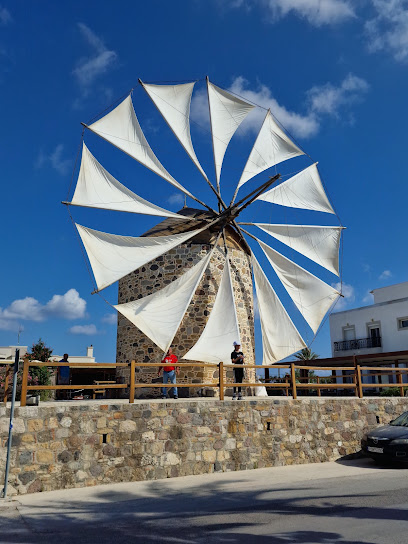
Kos Harbour
Explore the vibrant heart of Kos: a historic harbor with stunning Aegean views, delicious cuisine, and island-hopping adventures.
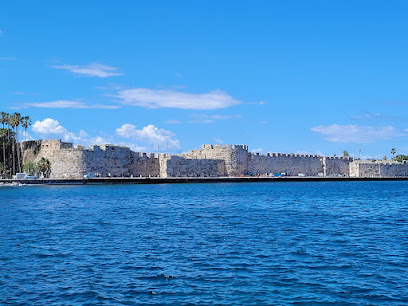
Palaio Pyli Castle
Explore the medieval ruins of Palaio Pyli Castle in Kos, offering panoramic Aegean views and a glimpse into the island's rich Byzantine history.
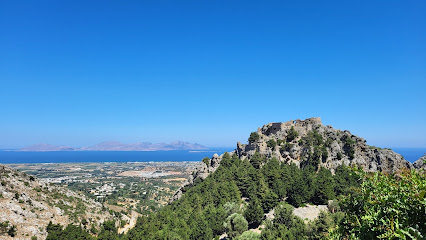
Casa Romana
Explore a lavish Roman villa in Kos Town: mosaics, frescoes, and a glimpse into ancient life on the island.
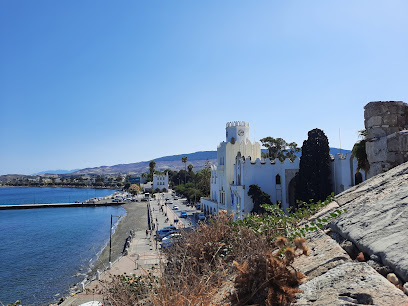
Antimachia Castle
Explore Antimachia Castle on Kos: a medieval fortress with stunning views, rich history, and well-preserved ruins dating back to the 14th century.
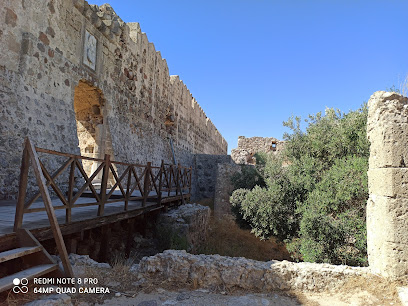
Kos Natural Park
Discover Kos Natural Park in Zia: A serene escape with local animals, lush flora, and stunning panoramic views of Kos island.
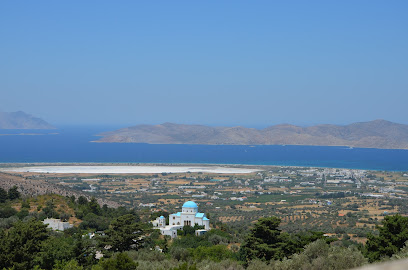
Castle of Kefalos
Explore the historic Kefalos Castle in Kos: Byzantine ruins, panoramic Aegean views, and a journey through medieval history.
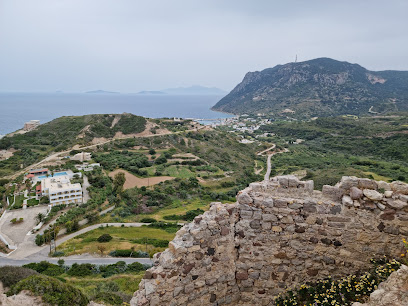
Dolphin Square
Experience the vibrant heart of Kos at Dolphin Square: a picturesque hub of culture, cuisine, and seaside charm, perfect for unforgettable moments.
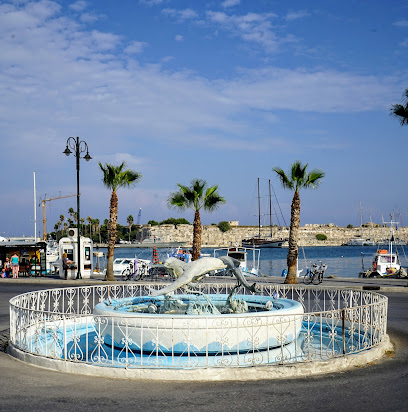
Archaeological Museum of Kos
Explore Kos's ancient heritage through fascinating artifacts and sculptures at the Archaeological Museum in Eleftherias Square.
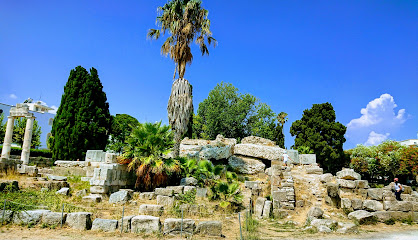
Unmissable attractions to see
Bodrum Castle
Explore the enchanting Bodrum Castle, a historic fortress rich in culture and breathtaking coastal views, perfect for any traveler seeking adventure.
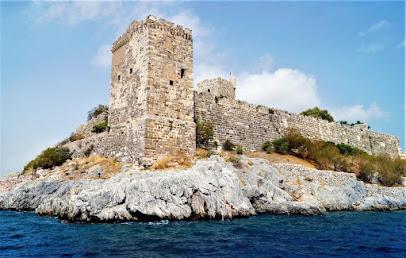
Hippocrates Plane Tree
Discover the ancient Hippocrates Plane Tree in Kos, a historical landmark where legend and nature intertwine, offering a serene escape and rich cultural heritage.
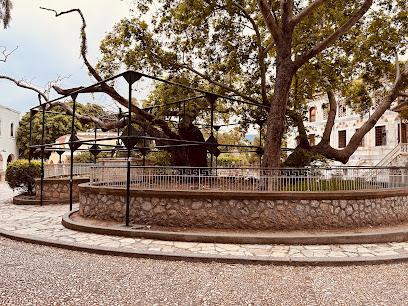
Asclepieion at Kos
Explore the Asclepieion at Kos, a historical landmark revealing ancient Greek medicine's roots amidst stunning scenic beauty.
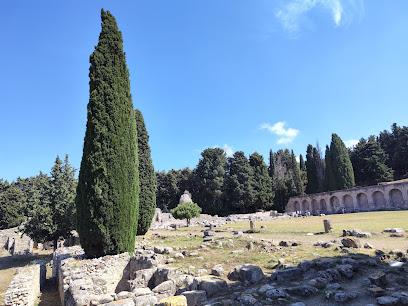
Knidos Ancient City
Uncover the ancient wonders of Knidos, a historical landmark in Turkey with breathtaking views and rich cultural heritage.
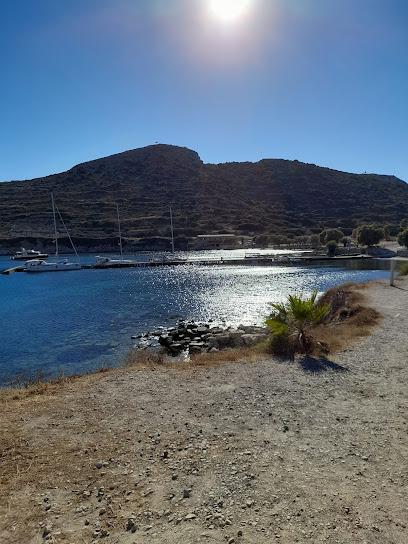
Zeki Muren Arts Museum
Experience the captivating world of Zeki Müren at his Arts Museum in Bodrum, showcasing his life's work and rich cultural heritage.
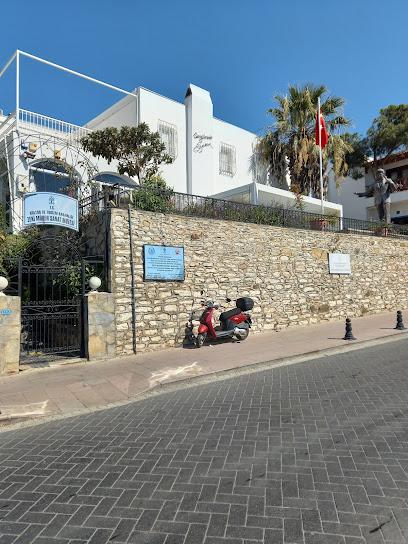
Plaka Forest
Experience the natural beauty and diverse wildlife at Plaka Forest, a serene animal park in Iraklidis, Greece, perfect for all nature enthusiasts.
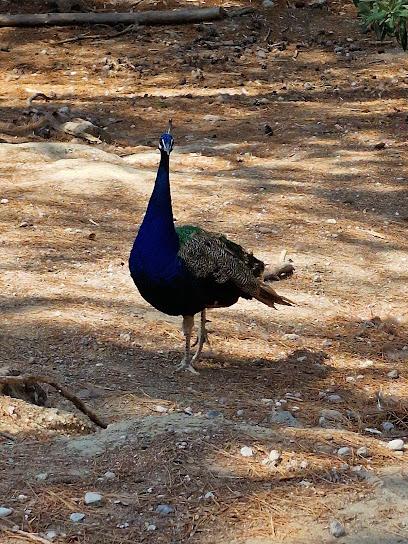
Roman Odeon of Kos
Explore the Roman Odeon of Kos, a beautifully preserved amphitheater that highlights the island's rich historical heritage and architectural brilliance.
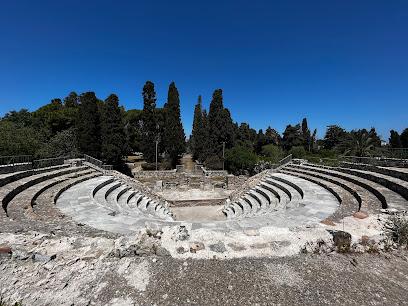
Gümbet Beach
Experience the golden sands and vibrant atmosphere of Gümbet Beach in Bodrum, Turkey—your ultimate destination for sun and fun.
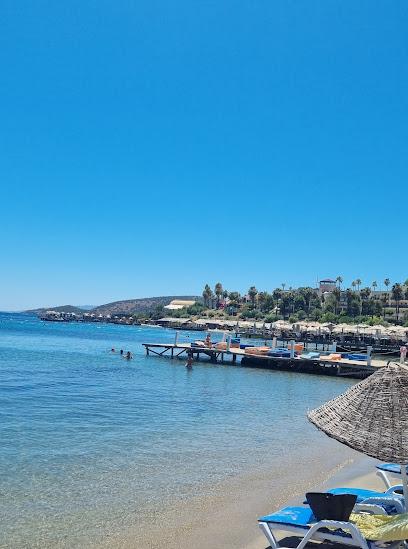
Mausoleum at Halicarnassus
Explore the Mausoleum at Halicarnassus, an ancient wonder and historical marvel in Bodrum, showcasing stunning architecture and rich cultural heritage.

Therma Beach
Discover the therapeutic allure of Therma Beach, where natural hot springs meet stunning Aegean beauty, perfect for relaxation and rejuvenation.
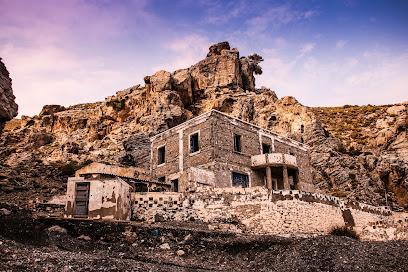
Agios Stefanos Beach
Discover Agios Stefanos Beach, a serene paradise in Kámpo, Greece, known for its stunning views, soft sands, and crystal-clear waters.
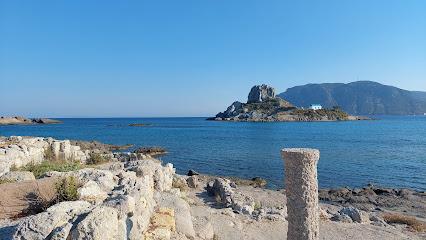
Kos Harbour
Discover the vibrant Kos Harbour, a charming marina with stunning views, delicious cuisine, and a gateway to the Aegean Sea.
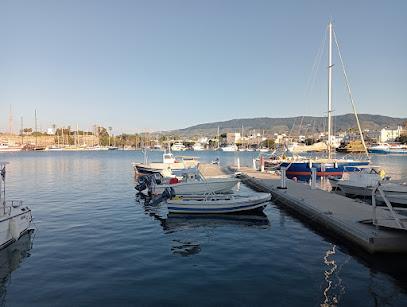
Palamutbükü Plajı
Experience the serene beauty of Palamutbükü Beach in Datça, a hidden treasure offering tranquility, adventure, and delicious local cuisine.
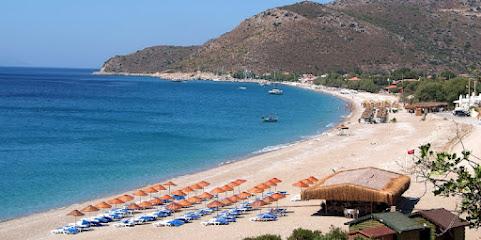
Datca Viticulture and Oenology
Explore the exquisite wines and local delicacies at Datça Viticulture and Oenology, a must-visit wine bar in the heart of Datça, Turkey.
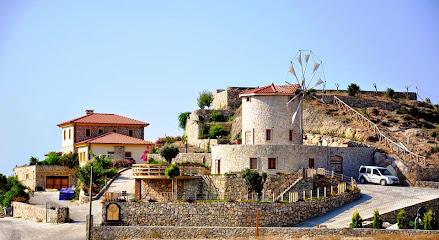
Paradise beach
Discover the beauty of Paradise Beach, Greece – a perfect blend of sun, sand, and vibrant beach culture for an unforgettable vacation experience.
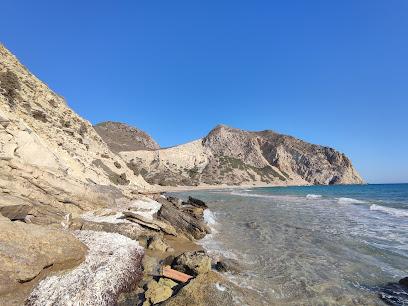
Essential places to dine
Hirodion
Discover delicious traditional Greek dishes at Hirodion in Kos - where authentic flavors meet warm hospitality.
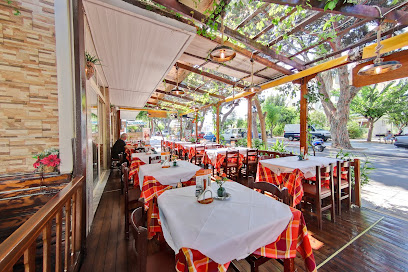
Elia
Discover Elia in Kos: where authentic Greek flavors meet delightful tapas in an inviting atmosphere.
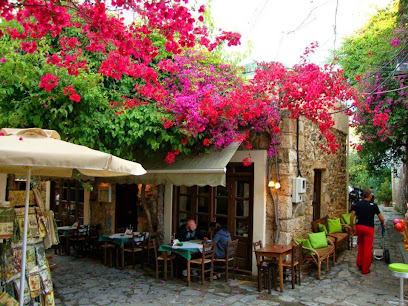
Broadway Restaurant
Experience authentic Greek flavors at Broadway Restaurant in Kos – where tradition meets innovation in every dish.
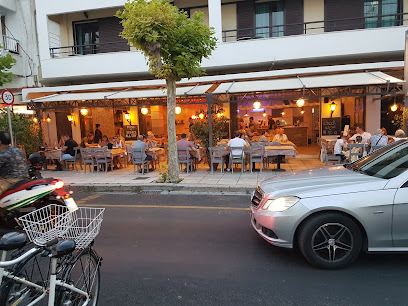
Agkyra Fish Restaurant in Kos Town
Experience authentic Greek and Mediterranean cuisine at Agkyra Fish Restaurant in Kos Town, where fresh seafood meets stunning views.
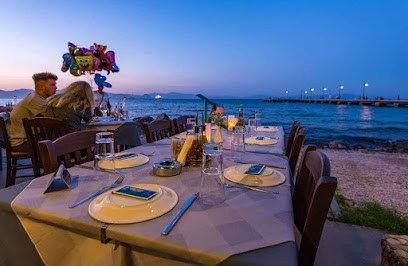
MOM'S KITCHEN
Experience authentic Greek cuisine at Mom's Kitchen in Kos – where every dish feels like home!
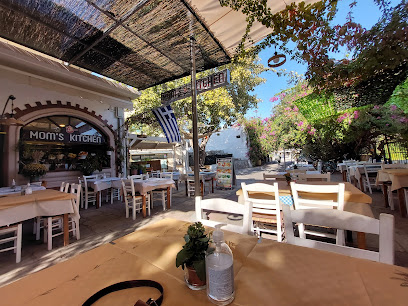
Ambrosia Meze - Restaurant
Experience authentic Greek cuisine at Ambrosia Meze in Kos – where every dish tells a story of tradition and flavor.
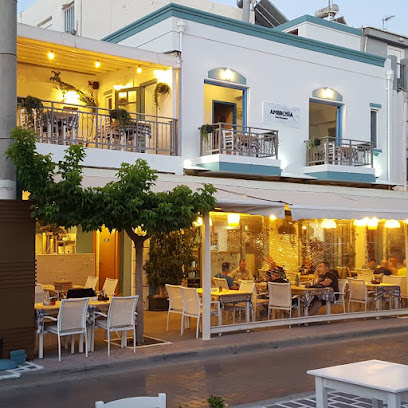
Barbouni
Experience exquisite seafood dining at Barbouni in Kos—where fresh flavors meet stunning seaside views for an unforgettable meal.
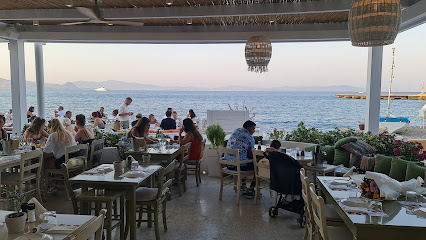
Lofaki Bar Restaurant
Experience exquisite dining at Lofaki Bar Restaurant in Kos – where delicious food meets breathtaking views.
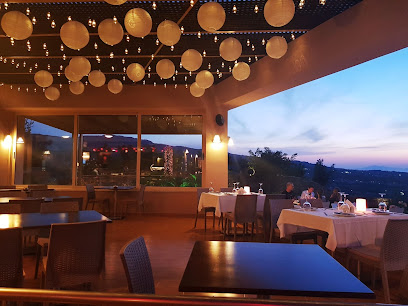
Istros
Discover authentic Greek cuisine at Istros in Kos – where traditional flavors meet modern European flair for an unforgettable dining experience.
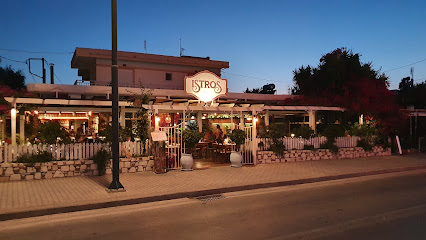
Noah's Ark
Discover the authentic taste of Armenia at Noah's Ark in Kos – where every dish tells a story.
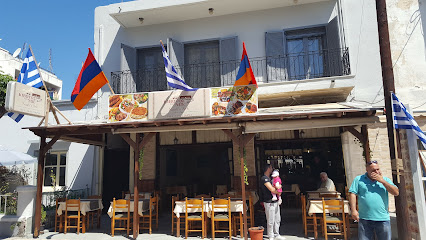
Koako Mediterranean taverna
Discover authentic Mediterranean cuisine at Koako Taverna in Kos - a must-visit destination for food lovers seeking rich flavors and warm hospitality.
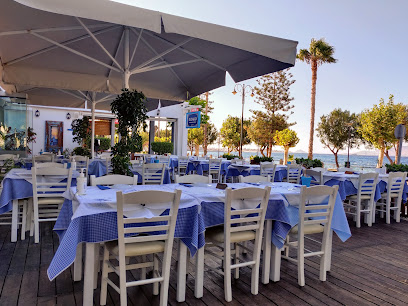
Sunset Taverna
Discover the essence of Greek cuisine at Sunset Taverna in Kos – where delightful flavors meet stunning sunset views.
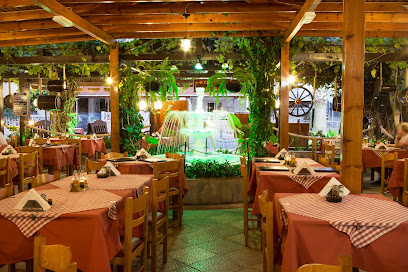
Degli Amici
Experience authentic Italian cuisine at Degli Amici in Kos – where tradition meets taste in every delightful dish.
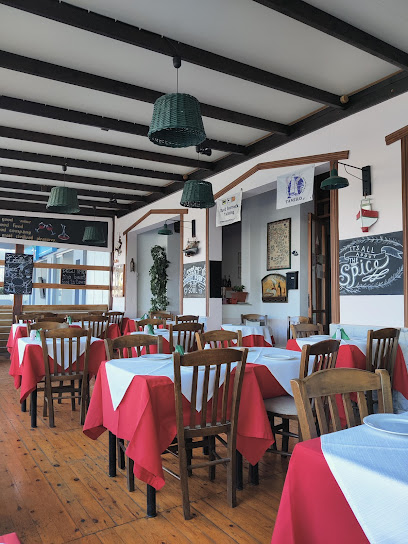
Okeanos ~ Greek Restaurant Kos
Discover authentic Greek cuisine at Okeanos Restaurant in Kos - where every meal is a celebration of flavor and tradition.
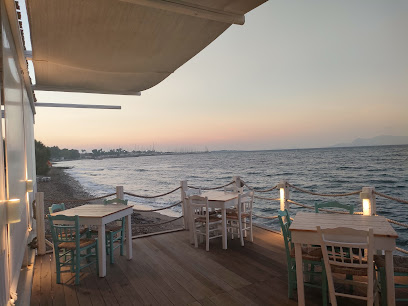
Ampavris Taverna
Discover the heart of Greek culinary tradition at Ampavris Taverna in Kos - where flavor meets hospitality.
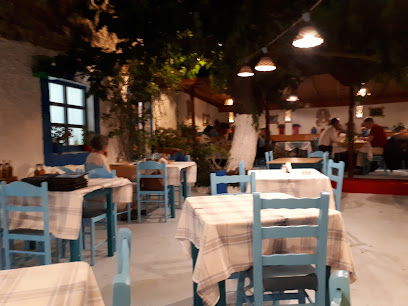
Markets, malls and hidden boutiques
Kos Municipal Market
Explore Kos Municipal Market: A vibrant shopping haven showcasing local produce, artisanal goods, and authentic Greek flavors in the heart of Kos.
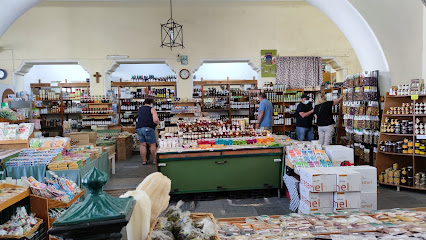
Hondos Center
Explore Hondos Center in Kos for a diverse shopping experience featuring fashion, beauty, and home essentials in a vibrant atmosphere.

OLIVE WOOD
Explore Olive Wood in Kos - a unique shopping destination for exquisite handmade olive wood crafts and local souvenirs.
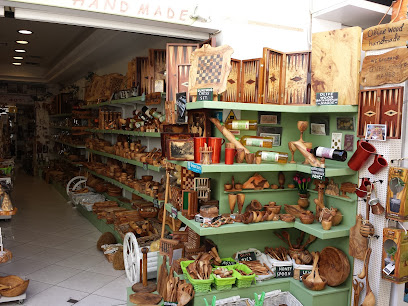
Kyklos L.T.D.
Discover the best shopping experience at Kyklos L.T.D. in Antimachia, where variety meets local charm in a welcoming department store.

Gala boutique Kos silver jewellery & beachwear
Explore exquisite silver jewellery and stylish beachwear at Gala Boutique Kos, a premier shopping destination in the heart of the island.
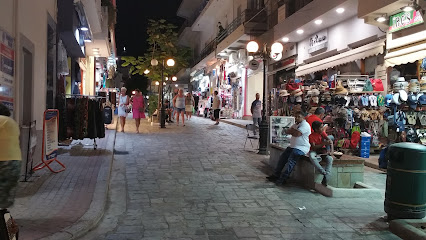
Funky Buddha
Discover stylish clothing for the whole family at Funky Buddha in Kos, Greece – a vibrant hub for fashion lovers.

Pink Woman
Discover the essence of Greek fashion at Pink Woman, where contemporary style meets quality and elegance in women's clothing.

Galatis Jewellery
Explore the exquisite craftsmanship of Galatis Jewellery in Kos, where unique, handcrafted pieces await to tell your story.
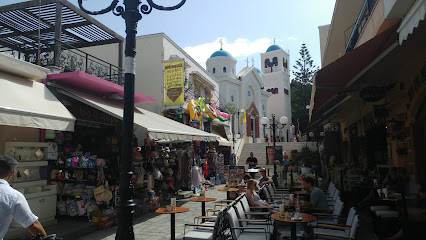
Peppermint Women's Clothing Store Kos
Explore the latest trends at Peppermint Women's Clothing Store in Kos, offering unique fashion finds and accessories for every occasion.
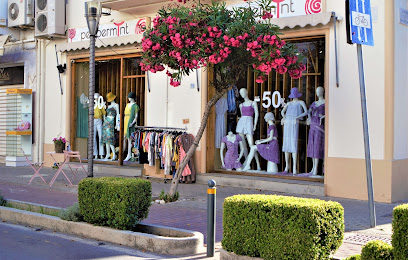
Parfois Kos
Discover the latest trends and stylish accessories at Parfois Kos, the ultimate fashion destination in beautiful Kos, Greece.
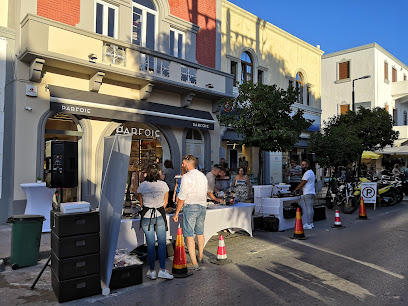
Diana Sports Shop
Explore the great outdoors with quality gear from Diana Sports Shop, Kos's top destination for hunting and fishing enthusiasts.
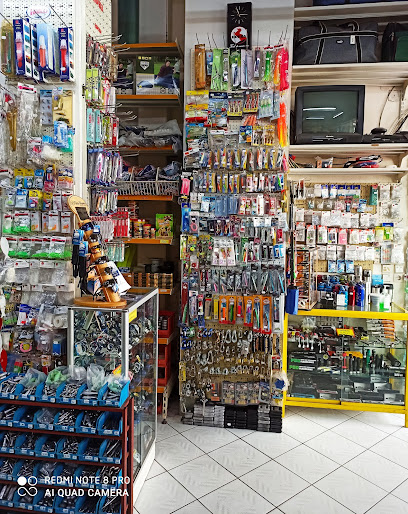
KOS NET
Discover KOS NET, a vibrant shopping mall in Kos, Greece, where shopping meets dining in a lively atmosphere perfect for tourists.
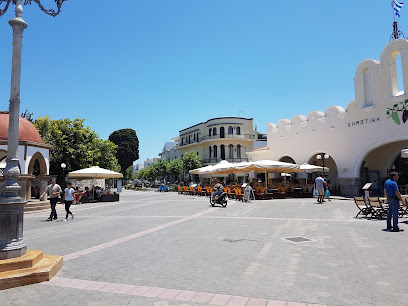
the fairy shop (AERIKO)
Explore the whimsical Fairy Shop in Kos for unique gifts, art supplies, and handcrafted jewelry that capture the island's enchanting spirit.
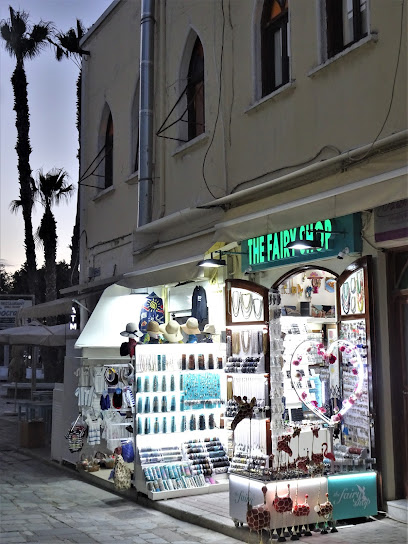
Lefos Handmade Greek Leather Sandals
Explore Lefos Handmade Greek Leather Sandals in Kos, where tradition meets elegance in every handcrafted pair of sandals.
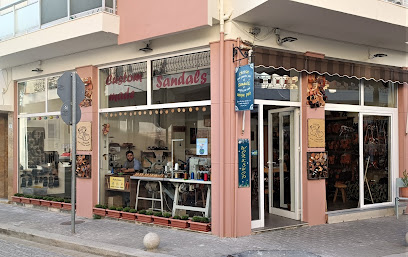
Jeans center kos
Discover stylish denim and casual wear at Jeans Center in Kos, where fashion meets the vibrant local culture.
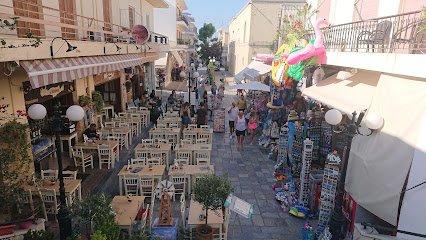
Essential bars & hidden hideouts
Mylos Beach Bar & Restaurant
Discover the perfect blend of relaxation and culinary delight at Mylos Beach Bar & Restaurant, where breathtaking views meet exquisite Mediterranean cuisine.
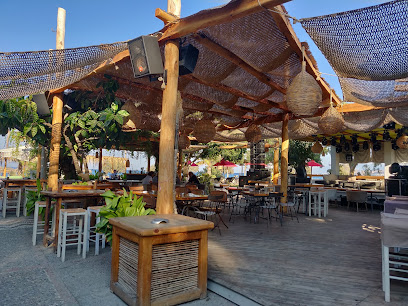
Jacksons bar/pub/restaurant/beach/suites
Discover Jackson's Bar in Kos - A vibrant blend of dining, cocktails, and entertainment by the sea, perfect for your island getaway.
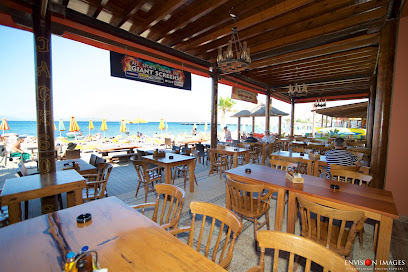
Camel Bar
Camel Bar in Kos: A vibrant nightlife destination offering stunning waterfront views, delicious cocktails, and an unforgettable atmosphere for all visitors.
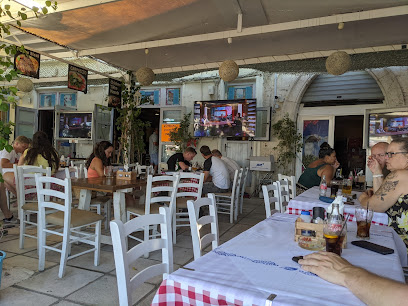
Tarzan beach Restaurant Bar
Experience the vibrant atmosphere at Tarzan Beach Restaurant Bar, where delicious Mediterranean cuisine meets stunning Aegean Sea views in Kos.
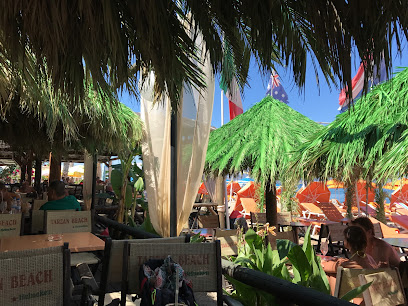
Sitar Cocktail Bar
Experience vibrant nightlife and expertly crafted cocktails at Sitar Cocktail Bar in Kos, Greece - the perfect place to unwind after a day of adventure.
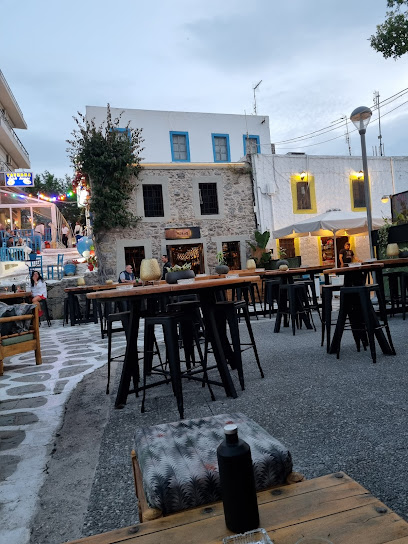
Arco Loungebar Kos
Discover the lively Arco Loungebar Kos, where delightful drinks and delicious dishes create the perfect ambiance for a memorable night out.
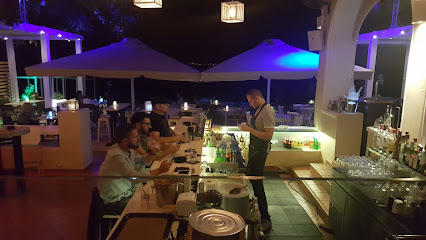
Papas Beach Bar - Water sports - Shisha
Discover the ultimate beachside experience at Papas Beach Bar, where relaxation meets adventure with water sports, cocktails, and shisha.

Zero Cafe - Bar - Beer Garden
Discover the vibrant atmosphere of Zero Cafe - Bar - Beer Garden in Kos, where drinks, food, and good company come together for an unforgettable experience.
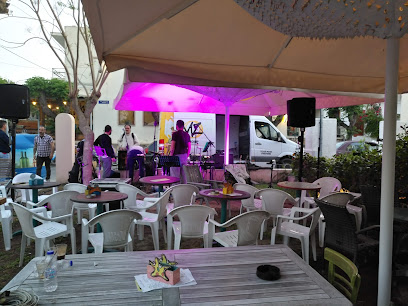
Artemis Heaven Beach-Bar
Experience the ultimate beachside relaxation at Artemis Heaven Beach-Bar in Kos, Greece, where stunning views meet delightful drinks and a vibrant atmosphere.
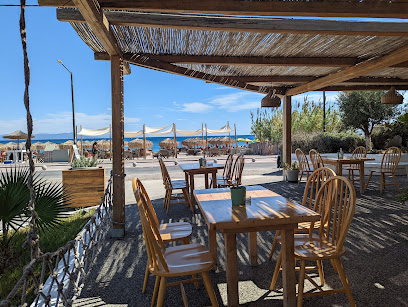
The Stone Roses Bar
Discover vibrant nightlife at The Stone Roses Bar in Kardamaina, where great drinks and a friendly atmosphere create unforgettable memories.
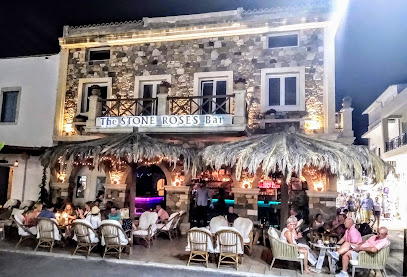
Omega Sky Bar ~ Cocktail Bar Kos
Discover the enchanting Omega Sky Bar in Kos, offering breathtaking views, exquisite cocktails, and an unforgettable nightlife experience.
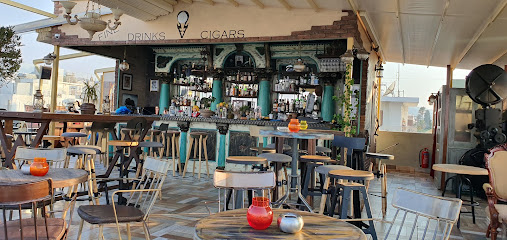
Blues Brothers
Experience the vibrant nightlife at Blues Brothers Bar in Kos, where great drinks, music, and unforgettable moments await every visitor.
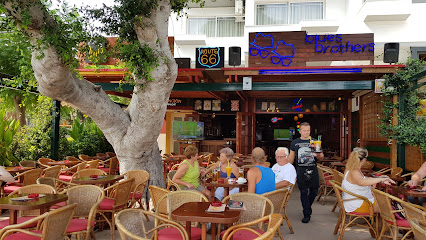
XL cafe & cocktail bar
Experience the vibrant nightlife at XL Cafe & Cocktail Bar in Kos, where expertly crafted cocktails and a lively atmosphere await every visitor.
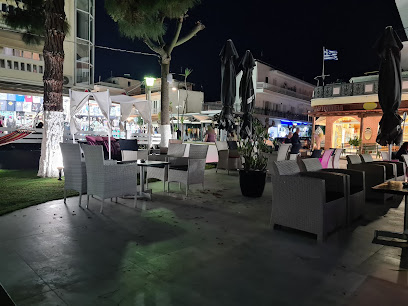
MASCOTTE Bar & Nightclub
Discover the pulse of Kos nightlife at MASCOTTE Bar & Nightclub, where cocktails, DJs, and vibrant energy create unforgettable nights.
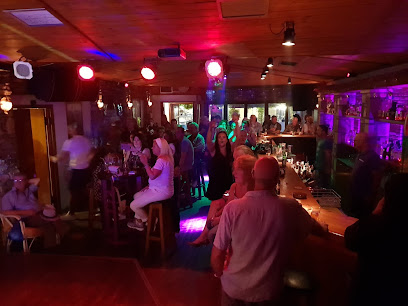
Local Phrases
-
- HelloΓεια σας
[Ya sas] - GoodbyeΑντίο
[Adio] - YesΝαι
[Ne] - NoΌχι
[Ohi] - Please/You're welcomeΠαρακαλώ
[Parakalo] - Thank youΕυχαριστώ
[Efharisto] - Excuse me/SorryΣυγγνώμη
[Signomi] - How are you?Τι κάνεις;
[Ti kanis?] - Fine. And you?Καλά. Εσύ;
[Kala. Esi?] - Do you speak English?Μιλάς Αγγλικά;
[Milas Agglika?] - I don't understandΔεν καταλαβαίνω
[Den katalaveno]
- HelloΓεια σας
-
- I'd like to see the menu, pleaseΘα ήθελα να δω το μενού, παρακαλώ
[Tha ithela na do to menu, parakalo] - I don't eat meatΔεν τρώω κρέας
[Den troo kreas] - Cheers!Υγεία!
[Yia] - I would like to pay, pleaseΘα ήθελα να πληρώσω, παρακαλώ
[Tha ithela na plirosso, parakalo]
- I'd like to see the menu, pleaseΘα ήθελα να δω το μενού, παρακαλώ
-
- Help!Βοήθεια!
[Voithia!] - Go away!Φύγε!
[Fige!] - Call the Police!Καλέστε την Αστυνομία!
[Kaleste tin Astynomia!] - Call a doctor!Καλέστε ένα γιατρό!
[Kaleste ena giatro!] - I'm lostΈχω χαθεί
[Eho hathi] - I'm illΕίμαι άρρωστος
[Ime arrostos]
- Help!Βοήθεια!
-
- I'd like to buy...Θα ήθελα να αγοράσω...
[Tha ithela na agoraso...] - I'm just lookingΑπλά κοιτάω
[Apla kitao] - How much is it?Πόσο κοστίζει;
[Poso kostizi?] - That's too expensiveΑυτό είναι πολύ ακριβό
[Afto ine poli akribo] - Can you lower the price?Μπορείτε να χαμηλώσετε την τιμή;
[Borite na hamilosete tin timi?]
- I'd like to buy...Θα ήθελα να αγοράσω...
-
- What time is it?Τι ώρα είναι;
[Ti ora ine?] - It's one o'clockΕίναι μία η ώρα
[Ine mia i ora] - Half past (10)Μισή (δέκα)
[Misi (deka)] - MorningΠρωί
[Proi] - AfternoonΑπόγευμα
[Apoyevma] - EveningΒράδυ
[Vradi] - YesterdayΧθες
[Hthes] - TodayΣήμερα
[Simera] - TomorrowΑύριο
[Avrio] - 1Ένα
[Ena] - 2Δύο
[Dyo] - 3Τρία
[Tria] - 4Τέσσερα
[Tessera] - 5Πέντε
[Pente] - 6Έξι
[Exi] - 7Εφτά
[Efta] - 8Οχτώ
[Ochto] - 9Εννιά
[Ennia] - 10Δέκα
[Deka]
- What time is it?Τι ώρα είναι;
-
- Where's a/the...?Πού είναι ένα/το...;
[Pou ine ena/to...?] - What's the address?Ποια είναι η διεύθυνση;
[Pia ine i diefthinsi?] - Can you show me (on the map)?Μπορείτε να μου δείξετε (στο χάρτη);
[Borite na mou dixete (sto charti)?] - When's the next (bus)?Πότε είναι το επόμενο (λεωφορείο);
[Pote ine to epomeno (leoforeio)?] - A ticket (to ....)Ένα εισιτήριο (για....)
[Ena isitirio (gia....)]
- Where's a/the...?Πού είναι ένα/το...;
History of Kos
-
Kos, a gem in the Dodecanese archipelago, boasts a history stretching back to the Neolithic era. Archaeological discoveries, such as tools and pottery, indicate that the island has been inhabited since 3000 BCE. Kos was known in ancient times for its fertile land and strategic position, making it an important hub for trade and culture.
-
In the 11th century BCE, Kos was settled by the Dorians, who established one of the six Dorian cities that formed the Dorian Hexapolis. The island became a significant center for the worship of Asclepius, the god of healing, which laid the groundwork for its future as a medical hub.
-
Kos is famously known as the birthplace of Hippocrates, the 'Father of Medicine,' who was born around 460 BCE. The island's Asklepieion, an ancient healing temple dedicated to Asclepius, became a renowned medical school where Hippocrates himself is said to have taught. His legacy continues to influence modern medicine.
-
During the Hellenistic period, Kos flourished under the rule of the Ptolemies, who turned it into a cultural and intellectual center. The island's prosperity continued under Roman rule, with impressive infrastructure developments such as aqueducts, baths, and theaters. The Roman elite frequently visited Kos for its therapeutic hot springs and medical expertise.
-
Kos remained an important island through the Byzantine period and saw the construction of numerous churches and fortifications. In the 14th century, the Knights of St. John took control of the island, fortifying it further to protect against Ottoman invasions. The impressive Castle of Neratzia, located at the harbor, stands as a testament to this era.
-
Kos fell to the Ottoman Empire in 1523 and remained under Ottoman control for nearly four centuries. This period saw a blend of cultures and architectural styles, with significant contributions like the Defterdar Mosque and the Ottoman fountains that still decorate the island.
-
In 1912, Kos was seized by Italy during the Italo-Turkish War and became part of the Italian Dodecanese. The Italians invested in infrastructure and restored many ancient sites. However, during World War II, the island faced significant turmoil, including bombardments and occupations by German forces after Italy's surrender in 1943.
-
After World War II, Kos became part of Greece in 1947 with the rest of the Dodecanese islands. The latter half of the 20th century saw rapid development in tourism, transforming Kos into a popular travel destination. Today, visitors can explore its rich history through well-preserved archaeological sites, medieval castles, and vibrant cultural festivals.
Kos Essentials
-
Kos is accessible via Kos Island International Airport (KGS), which has direct flights from major European cities, especially during the tourist season from April to October. Alternatively, you can take a ferry from Piraeus (Athens' port) or other nearby islands like Rhodes and Santorini. Ferries are frequent and offer a scenic journey across the Aegean Sea.
-
Kos has a well-connected public transport system with buses run by KTEL that cover the main towns and tourist spots. Taxis are readily available and reasonably priced, but make sure to agree on the fare beforehand. Renting a car, scooter, or bicycle is also a popular option for exploring the island at your own pace. Kos Town is particularly bicycle-friendly with dedicated bike lanes.
-
The official currency in Kos is the Euro (EUR). Credit and debit cards are widely accepted in hotels, restaurants, and larger shops, but it's a good idea to carry some cash for smaller establishments and markets. ATMs are plentiful, especially in tourist areas, but be aware of potential fees for international withdrawals.
-
Kos is generally a safe destination with low crime rates. However, like any popular tourist spot, be mindful of pickpockets in crowded areas, especially in Kos Town and at major attractions. Avoid poorly lit areas at night and keep an eye on your belongings. There are no specific high-crime neighborhoods targeting tourists, but standard travel precautions are always advisable.
-
In case of emergency, dial 112 for immediate assistance. Kos has a hospital located in Kos Town and several medical clinics around the island. Pharmacies are also available for minor health issues and over-the-counter medications. It is highly recommended to have travel insurance that covers medical emergencies.
-
Fashion: Do wear light, breathable clothing suitable for a Mediterranean climate, but remember to dress modestly when visiting religious sites. Avoid overly revealing outfits. Religion: Do respect local customs, especially in churches and monasteries. Cover your shoulders and knees, and remove your hat when entering. Public Transport: Do be courteous and offer your seat to elderly passengers. Don’t eat or drink on buses. Greetings: Do greet people with a friendly 'Kalimera' (Good morning) or 'Kalispera' (Good evening). A handshake is common, and a smile goes a long way. Eating & Drinking: Do enjoy local cuisine and try traditional dishes like moussaka and souvlaki. Don’t rush meals; dining is a relaxed and social affair in Greece.
-
To experience Kos like a local, visit the village of Zia in the Dikeos Mountains for stunning sunsets and traditional tavernas. Explore the local markets in Kos Town where you can buy fresh produce, local honey, and handmade crafts. Engage with the locals, who are often friendly and willing to share stories about the island's history and culture. Don’t miss the ancient ruins of Asklepion, an important healing center in antiquity, and the Castle of the Knights in Kos Town for a glimpse into the island’s medieval past.

















